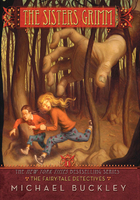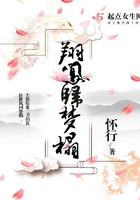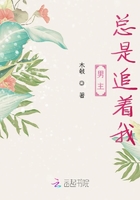One feature of that book must be referred to, which is by no means peculiar to it, but which it treats with special warmth-- the love of the educated Italian for country life.In northern countries the nobles lived in the country in their castles, and the monks of the higher orders in their well-guarded monasteries, while the wealthiest burghers dwelt from one year's end to another in the cities.But in Italy, so far as the neighbourhood of certain towns at all events was concerned, the security of life and property was so great, and the passion for a country residence was so strong, that men were willing to risk a loss in time of war.Thus arose the villa, the country-house of the well-to-do citizen.This precious inheritance of the old Roman world was thus revived, as soon as the wealth and culture of the people were sufficiently advanced.
Pandolfini finds at his villa a peace and happiness, for an account of which the reader must hear him speak himself.The economical side of the matter is that one and the same property must, if possible, contain everything- corn, wine, oil, pastureland and woods, and that in such cases the property was paid for well, since nothing needed then to be got from the market.But the higher enjoyment derived from the villa is shown by some words of the introduction: 'Round about Florence lie many villas in a transparent atmosphere, amid cheerful scenery, and with a splendid view; there is little fog and no injurious winds; all is good, and the water pure and healthy.Of the numerous buildings many are like palaces, many like castles costly and beautiful to behold.' He is speaking of those unrivalled villas, of which the greater number were sacrificed, though vainly, by the Florentines themselves in the defence of their city in 1529.
In these villas, as in those on the Brenta, on the Lombard hills, at Posilippo and on the Vomero, social life assumes a freer and more rural character than in the palaces within the city.We meet with charming descriptions of the intercourse of the guests, the hunting-parties, and all the open-air pursuits and amusements.But the noblest achievements of poetry and thought are sometimes also dated from these scenes of rural peace.
Festivals It is by no arbitrary choice that in discussing the social life of this period, we are led to treat of the processions and shows which formed part of the popular festivals.The artistic power of which the Italians of the Renaissance gave proof on such occasions, was attained only by means of that free intercourse of all classes which formed the basis of Italian society.In Northern Europe the monasteries, the courts, and the burghers had their special feasts and shows as in Italy; but in the one case the form and substance of these displays differed according to the class which took part in them, in the other an art amid culture common to the whole nation stamped them with both a higher and a more popular character.The decorative architecture, which served to aid in these festivals, deserves a chapter to itself in the history of art, although our imagination can only form a picture of it from the descriptions which have been left to us.We are here more especially concerned with the festival as a higher phase in the life of the people, in which its religious, moral, and poetical ideas took visible shape.The Italian festivals in their best form mark the point of transition from real life into the world of art.
The two chief forms of festal display were originally here, as elsewhere in the West, the Mystery, or the dramatization of sacred history and legend, and the Procession, the motive and character of which was also purely ecclesiastical.
The performances of the Mysteries in Italy were from the first more frequent and splendid than elsewhere, and were most favorably affected by the progress of poetry and of the other arts.In the course of time not only did the farce and the secular drama branch off from the Mystery, as in other countries of Europe, but the pantomime also, with its accompaniments of singing and dancing, the effect of which depended on the richness and beauty of the spectacle.
The Procession, in the broad, level, and well-paved streets of the Italian cities, was soon developed into the 'Trionfo,' or train of masked figures on foot and in chariots, the ecclesiastical character of which gradually gave way to the secular.The pro- cessions at the Carnival and at the feast of Corpus Christi were alike in the pomp and brilliancy with which they were conducted, and set the pattern afterwards followed by the royal or princely progresses.Other nations were willing to spend vast sums of money on these shows, but in Italy alone do we find an artistic method of treatment which arranged the processions as a harmonious and significative whole.
What is left of these festivals is but a poor remnant of what once existed.Both religious and secular displays of this kind have abandoned the dramatic element--the costumes--partly from dread of ridicule, and partly because the cultivated classes, which formerly gave their whole energies to these things, have for several reasons lost their interest in them.Even at the Carnival, the great processions of masks are out of fashion.What still remains, such as the costumes adopted in imitation of certain religious confraternities, or even the brilliant festival of Santa Rosalia at Palermo, shows clearly how far the higher culture of the country has withdrawn from such interests.















